Written by Mim Brown, Phoenix Support for Educators
Agency, love, self-care and a challenge to qualification mandates. We talk to six sector leaders about staff recruitment and retention and their responses to the staff shortages our sector is experiencing across the country.
The workforce shortage, educator burnout and mounting consumer demand for early childhood education is placing unprecedented pressure on the sector. We hear from leaders who are challenging the status quo when it comes to staff attraction and retention.
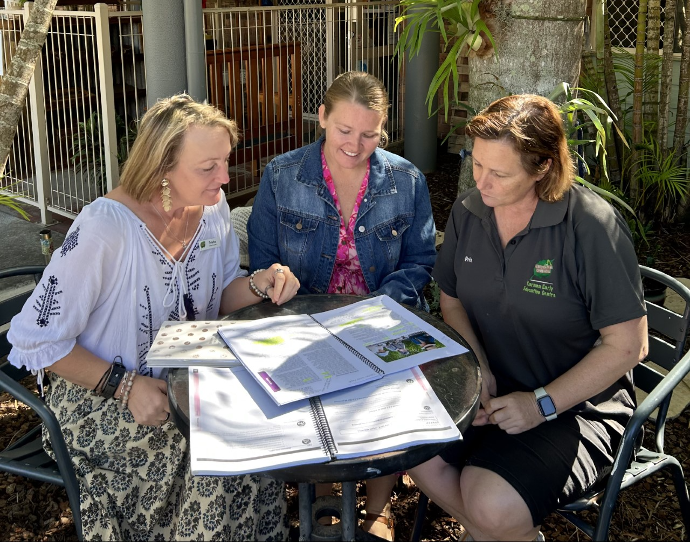
Reflecting on the workforce crisis as it has affected her team, Trisha says the strengths-focused, whole-person approach to management has, over the years, endowed Eskay Kids with generally low staff turnover and a highly collaborative team.
‘Our catchphrase here is “We all come here to live life together”,’ explains Trisha Dean, Educational and Operational Coordinator at Brisbane’s four Eskay Kids services, who describes how embracing a slow pedagogy has really helped them navigate these challenging times. This means prioritising strong, relaxed relationships, working with each educator’s strengths and a child-centred approach that puts the needs of children ahead of the multitude of daily tasks and priorities. For example, the commitment to slowing down has seen them ‘doing jobs like cleaning as required rather than just for the sake of it’ and documentation expectations are minimised so staff do not feel the need to take work home with them. ‘Our aim is to remove the stress and slow things down,’ she says and the nett effect has had an empowering effect on team morale.
‘In my 22 years in EC I’ve never known anything like this (staffing crisis),’ says Trisha. Like many in the sector, Trisha has seen a shift in work priorities among educators and she’s had to think hard on how to respond. ‘No-one wants full-time (work) anymore and people value work-life balance more than ever… The whole world is strange since Covid. Life’s hard and different and everything has changed.’
Visitors often comment on the sense of calm that prevails at the Eskay centres and Trisha attributes this to the team feeling authentically valued and cared for. ‘When staff feel genuinely valued and trusted they enjoy coming to work and they stay.’
Each leader we spoke to agreed staff shortages were playing havoc with service delivery, though they differ on how best to solve the problem. ‘Getting quality staff has always been an issue,’ says Gabrielle Flavin, a former service director who commenced working in the sector as a nanny and later went on to complete a TAFE and tertiary qualifications and serve as service director.
‘'Long day care especially is hard. Long days and so many relationships to maintain - the scale is just off the charts,’ says Gabrielle who these days operates Sticks and Stones Education, an educational toy and resource provider, as well as teaching in a Sydney-based not-for-profit preschool.
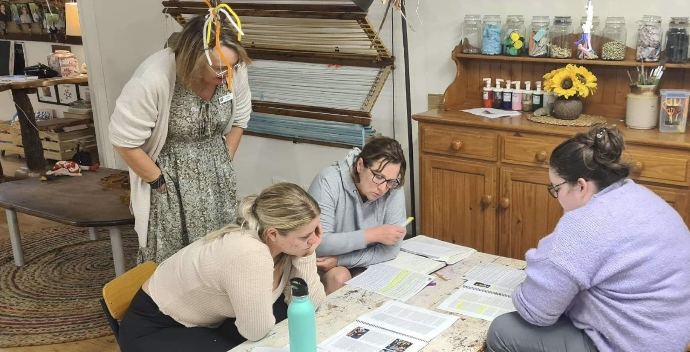
‘When you ask me about workforce stability, I think the key is to get into a service that you love and that loves you back. Workplaces need to get better at loving their staff and staff need to grow up. As educators we are constantly telling children to go tell so and so to “stop it. I don’t like it”. I always explain to the children in my care to be specific. I tell them: “You need to tell them: I don’t like when you do X because it makes me feel … “ ‘The number of adults in our sector who don’t seem to be able to have those conversations in their workplaces astounds me. We need to have the maturity to do what we are coaching the children to do.’
Others we spoke to challenge the regulations mandating minimum numbers of bachelor-qualified educators for worsening the staffing crisis. Jon Webb, Director of the Excellent-rated Everton Park Childcare and Development Centre in Brisbane and independent leadership consultant, questions the assumption that more teacher qualified staff results in higher quality learning outcomes.
‘I understand the theory behind implementing these regulations and the thought that this would contribute to improving the quality of early education throughout the country, however the theory and real-world implications are vastly different.’
‘We are now at a point where many centres in Australia are running continuous job advertisements for months on end without receiving a single legitimate application from a suitably qualified ECT. This causes significant stress, financial burden and in some cases is leading to centres reducing their capacity or even closing their doors completely.’
Jon points to increasingly generous remuneration being offered by some centres in order to secure ECTs and argues it has upped the stakes to the detriment of smaller services. ‘ECT’s are expecting this from all prospective employers, which leaves smaller providers in a position where they cannot viably employ an ECT and are at risk of becoming noncompliant. If a centre is in a position where they can offer this sort of lucrative contract to attract an ECT another issue arises. How do contracts and entitlements like these make other educators feel?’
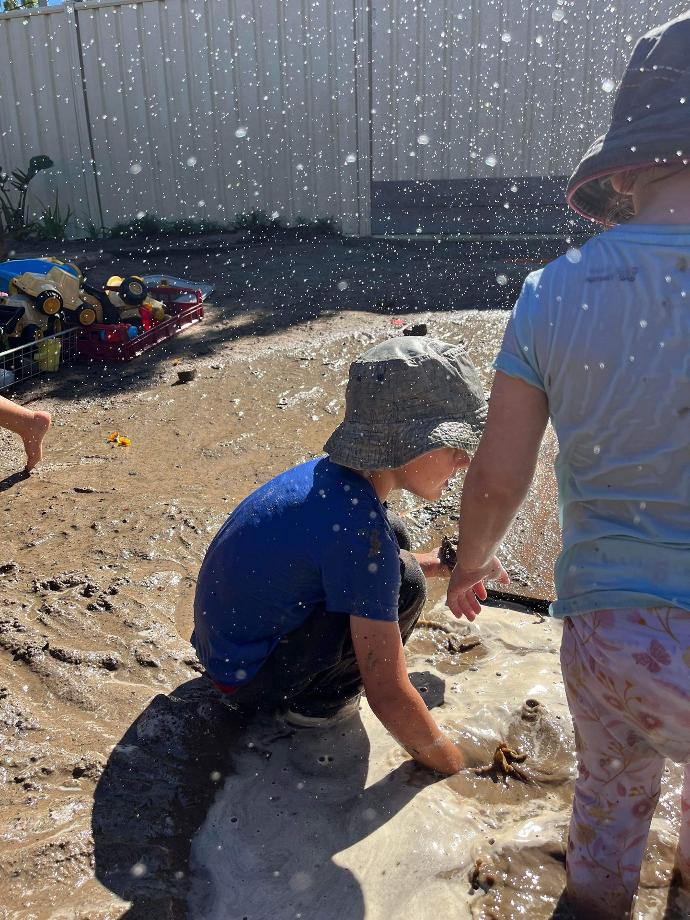
Jon reflects on his 20 years in the sector working and consulting to a wide range of services and believes the skill and practice of bachelor qualified teachers is not always greater than that of an experienced diploma-qualified one, arguing it is time to drop the ECT requirements. ‘We know that this essential industry is in dire straits and on the verge of collapse and I feel the ECT issue has contributed strongly to this.’
Goodstart Shailer Park Director Kristy Morgan says the teacher shortage has impacted her Brisbane service directly. ‘It took us 18 months to find our last ECT who finished up last week after only one year of service. She moved onto a school to teach. It is difficult, because of the requirement, you can’t recruit a senior ed for the role, so consistency sometimes suffers, and families feel disadvantaged too. As the staff shortage has also been felt in schools, a lot of the available ECTs have found themselves doing relief teaching and getting paid a lot more with a lot less responsibility.’
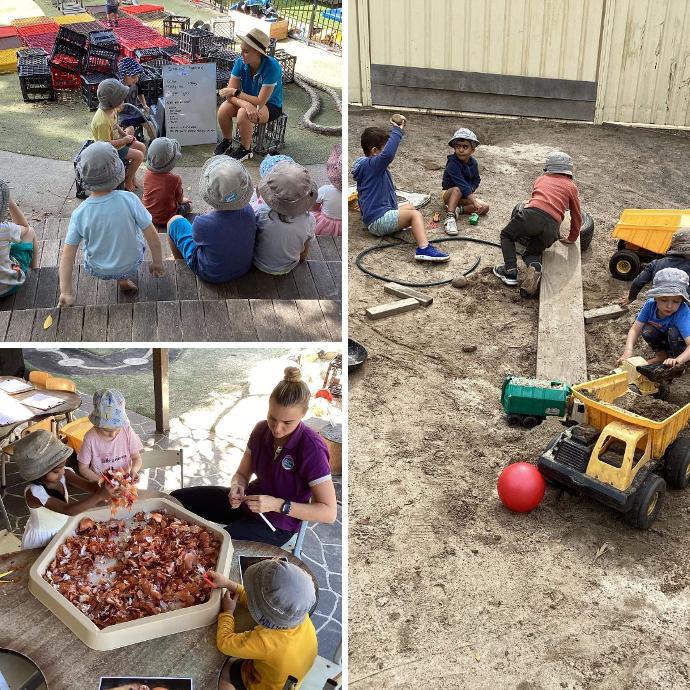
‘I have also had ECTs come and go in shorter periods, because our centre is child led and play based which takes away from common “teacher” like agendas and routines and quite frankly, it is important that philosophies are aligned. The difficulty comes when teachers are not aware of the particular importance play has in the first five years and prefer to provide the mythical skills of school readiness.’
That said, Kristy works hard to support her team and describes being ‘really present’ with the team as they move through the crisis. ‘Trying to keep numbers capped to educators rather than forcing more children in (and avoiding staff) burn out,’ has been an important part of her response, as has listening carefully as a leader and putting extra effort into recruitment in order to maintain staff consistency.
Gabrielle brings a different perspective to the challenges of meeting minimum qualification mandates. ‘Don’t cut requirements for teachers just because the sector is struggling. I know I’m a way better teacher today (having completed a Bachelor’s degree) than I was with a Diploma. The whole system needs fixing. Don’t blame the ECTs! Watering down qualifications is not going to solve the problems. Regardless of qualifications, there are always those who are incredibly good at what they do and those who coast. But the depth of understanding from a four-year university degree is far more likely to give you quality outcomes than one year will. Schools wouldn’t get away with it and neither should ECE.’
‘Here in New South Wales we’ve always had a 1:10 ratio for ECTs and preschool aged children. The problem as I see it is the corporatisation of EC. How do we possibly get to know 120 children, 200 families (in bigger services)?’
At East West Childcare and Kindergarten in Melbourne’s inner-city Fitzroy, Co-coordinator Ruth Harper says her service’s philosophy has been key to their high staff retention.
'We are one of the only services I know of that does not have a staff shortage,’ Ruth explains of the NQS exceeding-rated service which currently enrols 41 children from six months to school age and employs 13 staff.
‘We pay four per cent above the Professional Childcare Standard Award, and offer consistent shifts for all staff – regardless of whether they are casual or permanent, because we know how important it is to be able to plan your life around consistent work hours.’ But Ruth is quick to add that its more than just wages underpinning the low staff turnover. ‘People come here and tend to stay.’
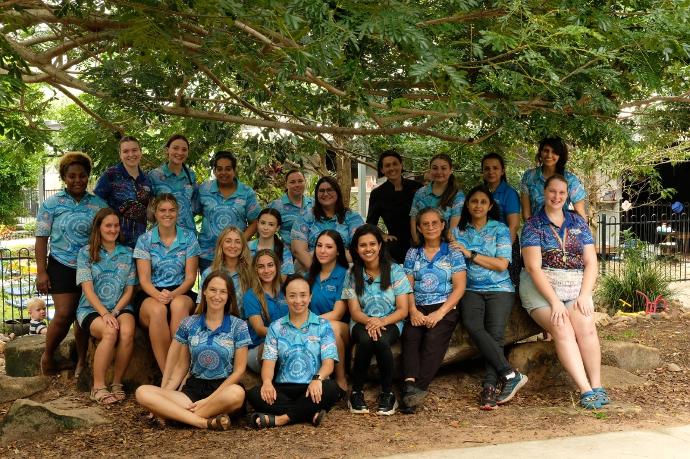
On average staff at East West have been with the service 18 years and some staff travel great distances to get there.
Ruth attributes the stability to the culture of agency embedded in their philosophy. ‘We work really hard to empower and support staff. We’re still interested in what ECEC possibilities are – we’re not static. Staff know they can ask questions of our practice. We prioritise a sense of meaningful agency for everyone here at East West. That’s not to say that anything goes, we believe in listening and respectful collaboration. People walk in here – parents and educators – and sometimes they say “no, this is not for me”, we take that as a positive.’
In terms of recruitment, most of the current team joined East West via student placement or existing relationships ‘A lot of self-selecting goes on – someone comes in as a student and love us and it just goes from there.’
None of the challenges expressed by her counterparts surprise Georgia Cleanthous, Director and Early Childhood Teacher at Darwin’s Dripstone Children’s Centre, who stands by the qualification mandates and sees a clear link between higher qualifications and high-quality learning outcomes. Her solution to attracting and retaining staff is all about improving conditions. ‘Retaining staff is a money game,’ she says, adding that Dripstone pays above award and many staff are on awards above their qualifications or experience. ‘We also provide a supportive work environment with PDs, programming, mentoring as well as a wellbeing program. That said, staff leaving Dripstone have indicated that higher pay was a significant factor. ‘Fingers crossed for the sector wages increase and funding to support it,’ says Georgia.
Summing up the sentiments expressed by the group, Trisha says: ‘I think we have to stop waiting for things to get better. We have to start working with what we’ve got and making now as good as it can be.’
Have an opinion on this article? We want to hear it. Let us know your thoughts on education and care worksforce issues in the comments below.

By Mim Brown, Facilitator, Phoenix Support for Educators
Update: Effective 1 July 2023, Australia’s Education Ministers have agreed to extend workforce transitional arrangements for a further 12 months, until 31 December 2024.
The Sector have reported extensively on this issue. You can read more about it here:
https://thesector.com.au/2023/04/28/acecqa-extends-equivalency-rule-for-ects-as-shortages-continue